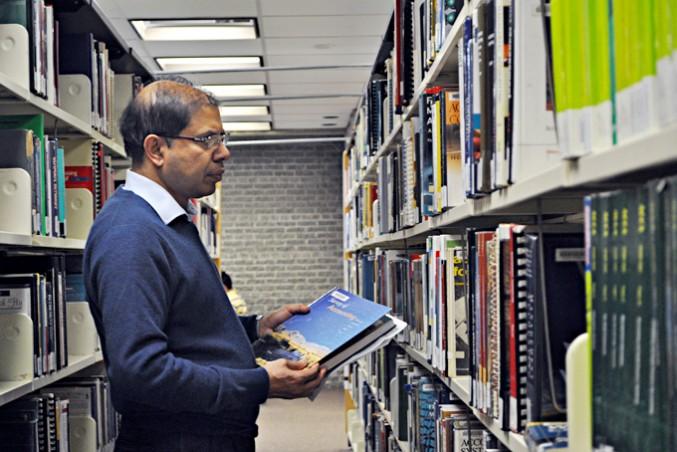By Michelle McNally
Slap a few keywords into the search bar on the Ryerson library’s website and a hundred answers spit back out. Dozens of scholarly journals, articles and papers galore. It’s research paper time — but where does one start?
The Ryerson Library is holding its annual Open Access Week. Five days of webinars and workshops are available for students and faculty who want to learn how to take advantage of the university’s academic research system.
But without the school’s affiliation, many of these resources come with a hefty price tag. Open Access Week, celebrating its eighth anniversary, advocates to have credible scholarly information available without paywalls.
“You go onto the internet, how often do you hit a paywall [when you’re doing research]?” asked Ann Ludbrook, a copyright and scholarly engagement librarian at Ryerson University Library and Archives.
“If you aren’t affiliated with a university like Ryerson that is paying those subscriptions to get that journal content, it’s not publicly available.”
When an author wants to publish an academic paper, they must submit it to a scholarly publisher and have it go through a peer review procedure. The piece is then analyzed and critiqued to meet the scholarly threshold.
If approved, it’s sent off to a journal aggregator who sells the access rights to universities, libraries and researchers.
But there are problems with this expensive process. Sometimes, publishers release only pieces of the academic article and an extra fee is charged to access the rest.
“Publishers are taking money twice: They take it when they sell it to libraries and then they’re taking it when they ask for that access fee,” said Ludbrook.
According to the librarians, it cost the school $2 million in fees to access 200 scholarly databases last year. Open Access Week has sparked a movement to push back against this.
Daniela Buitrago, a fourth-year nursing student, said that there is a lot of unreliable information when it comes to research and that it’s important to have updated access.
“There is new research coming out in different aspects all the time and if you have research that’s old, then you’re going to be using outdated information,” Buitrago said. “And that’s not okay if you’re writing a paper.”
Academic papers, usually written by researchers and scientists, are publicly funded. When an author publishes a scholarly article, they sign away their rights to the publisher. Their work is tied up in a wrangle of fees, preventing the public from accessing it.
“The business of academic [and] higher education publishing, especially in the sciences, is very big,” Ludbrook said. “Publishers do very well on the digital model in selling subscriptions back. We get packages and we have to buy that journal five different times because they’re bundling [them].”
Ludbrook said that to get rid of these fees would not only serve a better base for research, but would also allow publicly invested work to reach its full potential.












Leave a Reply